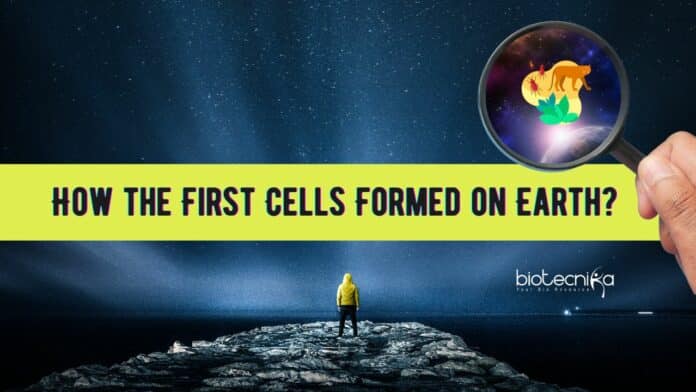Unveiling the Origin of Life: How the First Cells Formed on Earth?
The journey of life on Earth began over four billion years ago with the formation of the first cell, leading to the diverse range of species we see today. Scientists have long been intrigued by the mystery of how that initial protocell came into existence, and recent research conducted by a team of Indian scientists at Scripps Research has provided new insights into this fascinating process.
Understanding the Transition of Protocells
The study aimed to unravel the transition of protocells, the precursors to modern cells, from simple single-chain structures to more complex double-chained formations capable of carrying out chemical reactions and dividing. This transition is considered crucial for the emergence of life on Earth.
The Role of Phosphorylation in Protocell Formation
A key finding of the research is the discovery of a chemical process called phosphorylation that played a vital role in the formation of protocells. Phosphorylation is the process of adding phosphate groups to molecules, and the researchers believe that this process occurred earlier than previously thought. Phosphates are fundamental to various chemical reactions in the body and are believed to have been present in the early
stages of Earth’s formation.Reconstructing Prebiotic Conditions
To simulate the conditions of prebiotic Earth, the scientists conducted experiments using a combination of fatty acids and glycerol to create vesicles resembling protocells. By varying factors such as pH levels, component ratios, metal ions, and temperature, they observed the transition of vesicles from a fatty acid environment to a phospholipid environment. This transition likely mirrors the process that took place billions of years ago, paving the way for protocell formation.
Implications of Fatty Acids and Glycerol Phosphorylation
The study suggests that the phosphorylation of fatty acids and glycerol played a crucial role in creating stable, double-chain structures, thereby diversifying the evolution of protocells. This process led to the emergence of vesicles with varying tolerances and functionalities, setting the stage for the development of more complex life forms.
Insights into Early Life on Earth
By shedding light on the chemical dynamics involved in the formation of protocells, this research provides valuable insights into the early stages of life on Earth. The discoveries made by the Indian scientists at Scripps Research contribute to our understanding of how the building blocks of life came together, sparking the remarkable journey of evolution that continues to this day.
In conclusion, the groundbreaking research on the formation of protocells offers a glimpse into the intricate processes that led to the origin of life on our planet. By unraveling the mysteries of the past, scientists are paving the way for a deeper understanding of our evolutionary history and the fundamental principles that govern life itself.
How the First Cells Formed on Earth – Latest Research






























